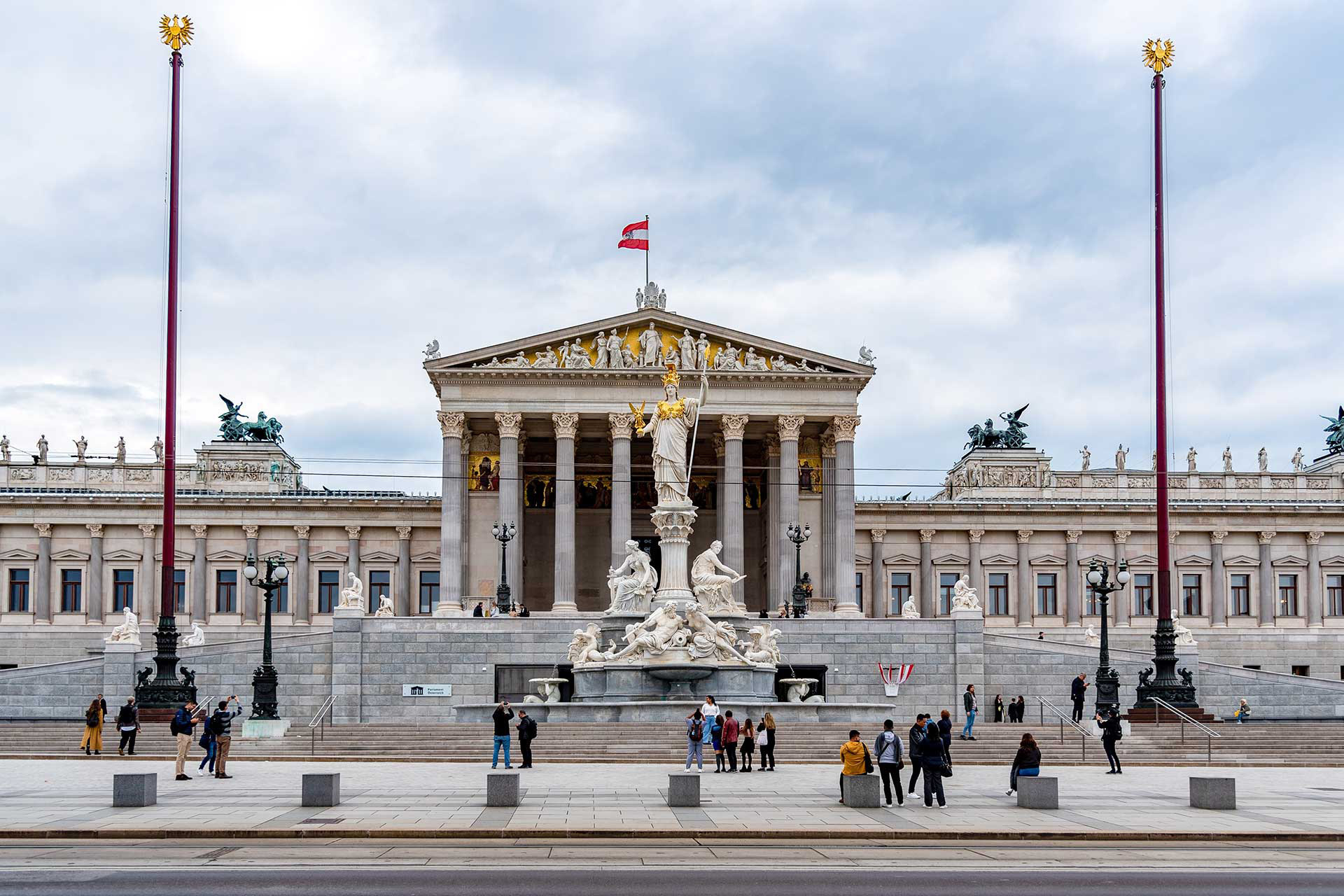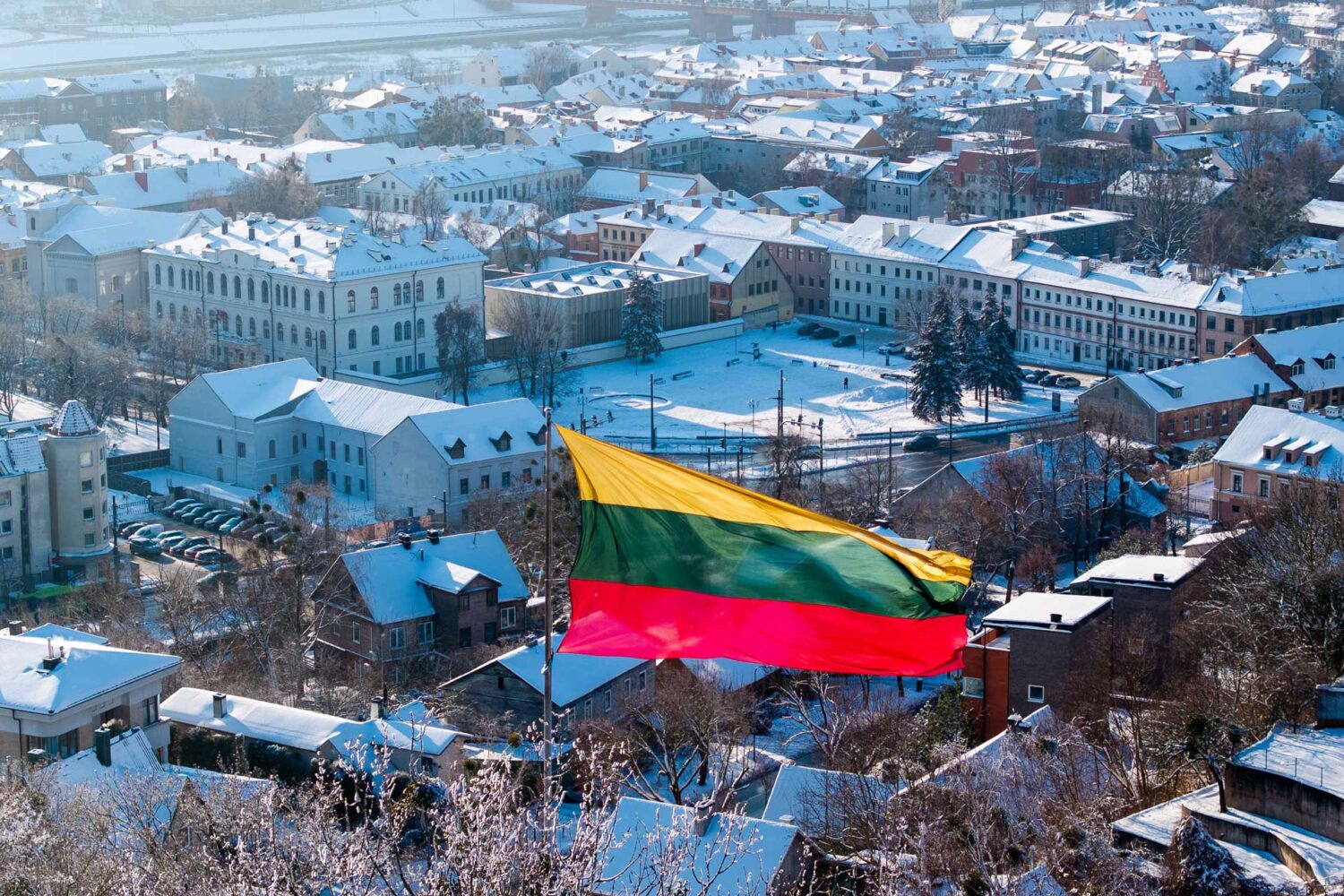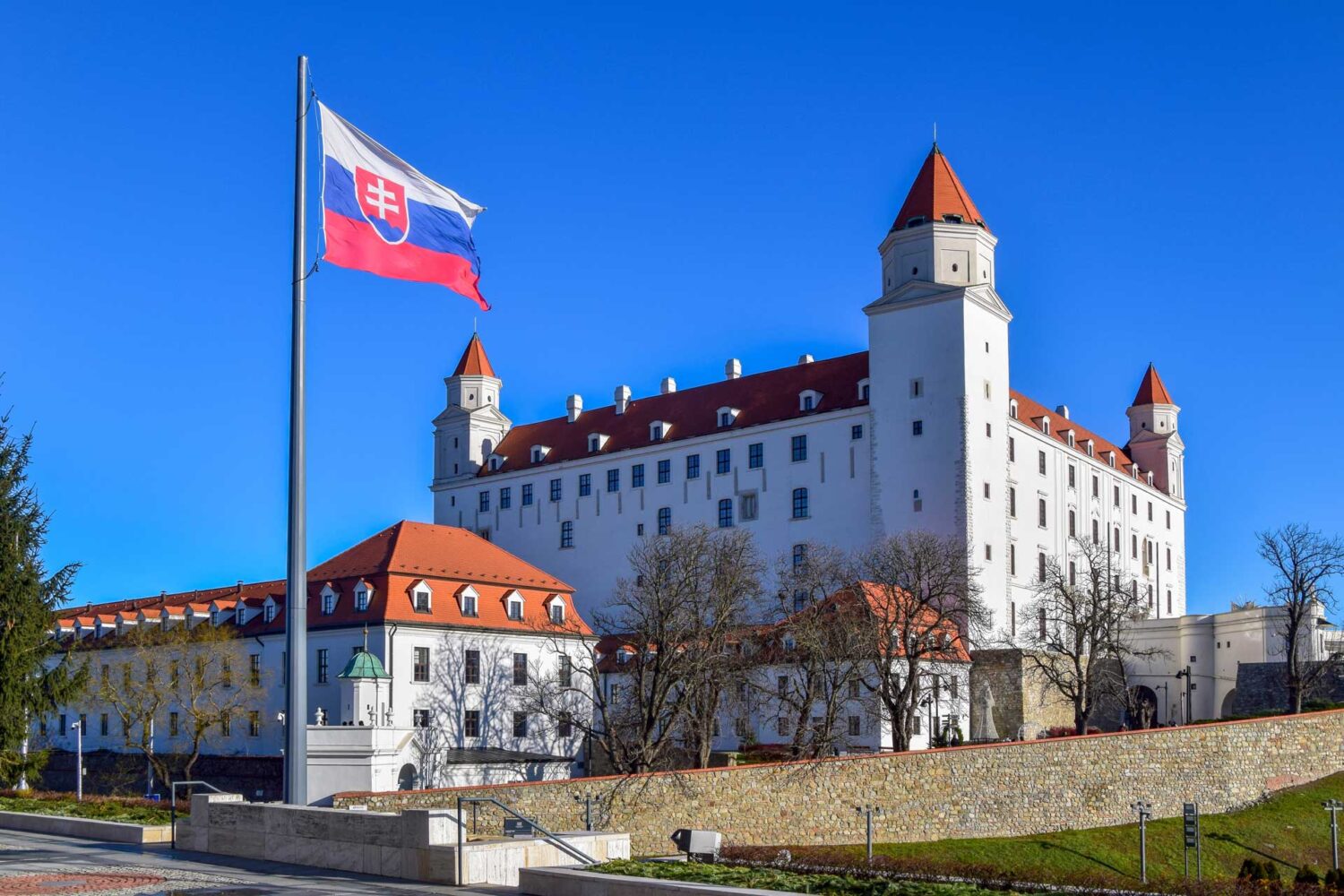Austrian citizenship is an official status that makes a person a full citizen of the Republic of Austria and the European Union. The Austrian passport is among the strongest in the world, providing the right to live and work freely in any EU country. In addition, Austria is known for its high standard of living and stable economy, which increases the value of citizenship. It is not without reason that only in 2024, almost 22 thousand foreigners received Austrian passports.
However, obtaining citizenship is not easy: the procedure is strictly regulated by the Austrian Citizenship Act of 1985 (Staatsbürgerschaftsgesetz) and requires long naturalization. Usually it is a long way: the standard period of residence before applying is 10 years, but under certain conditions it is reduced to 6 years or, on the contrary, actually stretched to 15 and even 30 years. Below we will consider in detail all the ways to apply for Austrian citizenship, the requirements for applicants, the procedure, terms, cost and other nuances (including the possibility of dual citizenship). We will also give practical advice on how to assess your chances and where to turn for help.
Tip: Start with a clear-eyed understanding of your reasons and plans. If your goal is to obtain a passport of Austria or another EU country as quickly as possible, consult an immigration lawyer about the most suitable programs. A specialist can help you find the best route for your situation.
Benefits of Austrian citizenship
Austrian citizenship offers many advantages, among which the main ones are:
- Freedom of movement.
The Austrian passport entitles you to visit almost 190 countries without visas or to obtain a visa on arrival. The Austrian passport ranks among the first in global rankings for this indicator. Citizens can also live, study and work in any country of the EU and Schengen zone without restrictions, without the need to obtain a residence permit or work permit. - Social benefits and quality of life.
Austrian citizens have access to one of the best education and health care systems in the world, as well as to a wide range of social benefits and allowances. The country’s stable and developed economy provides a high standard of living and employment opportunities. Austria ranks among the EU leaders in terms of prosperity, which has a positive impact on the security and standard of living of its citizens. - Banking and financial opportunities.
Austrian citizenship facilitates the opening of accounts in reliable European banks and access to EU financial services. In addition, having an Austrian passport makes it easier to do business not only in Austria but also throughout the European Union. Citizens are free to invest, buy real estate and open companies in other association states. - Political rights and hereditary transfer of citizenship.
Austrians have all political rights in the country: they participate in elections, referendums and can hold public office. Citizenship is passed on to children: a child automatically becomes a citizen if at least one of the parents is Austrian. This makes subsequent life easier for families – children of Austrian citizens also receive an EU passport and all the privileges associated with it.
Find out details about applying for an EU passport at a free consultation
Fill out the simple form and an immigration lawyer will contact you shortly
How to obtain Austrian citizenship
There are various grounds for citizenship in Austria: by birth, through naturalization (including simplified naturalization), by descent (repatriation) and for special services to the state. Below we will consider each of the directions, who it is suitable for and what features it has.
It is important to note that it is impossible to “buy” Austrian citizenship directly – a mere investment in the economy or the purchase of real estate is not enough to issue a passport. There is also no automatic granting of citizenship to children of foreign citizens born on the territory of Austria (which means that the principle of jus soli does not apply, citizenship is transmitted only by blood).
Naturalization (general procedure)
The main way is naturalization through long-term residence. A foreign citizen can apply for Austrian citizenship if he or she has lived in the country legally and continuously for at least 10 years. First the candidate must obtain a temporary residence permit and live with it for a number of years, then obtain a permanent residence permit and on the basis of long-term residence apply for citizenship.
The standard conditions for naturalization include: knowledge of the German language, integration into Austrian society, financial independence and renunciation of previous citizenship (more details on the requirements in the next section). After the application is approved, the applicant takes an oath of allegiance to the Republic of Austria and receives a citizenship certificate.
The period of residence for ordinary naturalization is 10 years, of which at least 5 years must be spent in permanent residence status. Austrian law emphasizes that the granting of citizenship even after 10 years is not an automatic right, but remains a discretionary decision of the authorities. The authorities assess the fulfillment of all conditions and the integration of the applicant before granting the application.
Accelerated naturalization (preferential cases)
In some cases, the law allows citizenship to be granted more quickly, after about 6 years of residence, if additional criteria are met. This preferential procedure is available if one of the following conditions is met:
- Marriage to an Austrian citizen.
The spouse of an Austrian citizen is entitled to apply for citizenship after 6 years of residence if he or she has been married for at least 5 years and the couple has been living together in Austria for the entire time. This means that the length of residence requirement is reduced for those who have lived as a family with an Austrian for a longer period of time. (Important: if the Austrian spouse obtained his or her status by naturalization, the foreign spouse still has to live the standard 10 years). - EU citizenship.
Persons who are already citizens of another EU or EEA country can naturalize in Austria after 6 years of residence. It is easier for Europeans to integrate, so there is a shorter period for them. - Birth on the territory of Austria.
If the applicant was born in Austria (but to non-citizens), he/she is also eligible for Austrian citizenship after 6 years of permanent residence. In this way the integration of those who actually grew up in the country is encouraged. - High level of integration.
An applicant who has demonstrated special integration can accelerate naturalization. Criteria: German language proficiency to B2 level (above the required minimum) or significant contribution to society – for example at least 3 years of volunteering for charitable organizations, work in the health or education sector, active participation in trade unions, etc. Such achievements are considered as evidence of the applicant’s sustainable personal integration.
Please note that even with the accelerated procedure, the requirement of continuity of residence remains: out of 6 years, no more than 20% of the time (approx. 14 months) may be spent outside Austria. It is necessary to have actually lived in the country for the majority of the period before submitting the application.
Find out how to obtain citizenship faster
Citizenship by descent (by parents)
Austria adheres to the principle of the “right of blood” (jus sanguinis): the nationality of the child is determined by the nationality of the parents. Therefore, the easiest way to become an Austrian is to be born into a family of Austrian citizens.
- If both parents or the mother of the newborn are Austrian citizens, the child is automatically granted citizenship from the moment of birth.
- If the parents are not married, but the father is Austrian and the mother is a foreigner, the child acquires citizenship provided that the father has officially recognized his paternity within 8 weeks after the birth (or the fact of paternity is established by the court within this period). If the acknowledgment is later than 8 weeks, the child can still acquire Austrian citizenship, not automatically, but through a simplified application procedure.
- Special case: an infant (foundling) under 6 months of age found on Austrian territory is considered an Austrian citizen by default (until otherwise clarified). This is a humanitarian norm designed to protect children of unknown origin from statelessness.
Thus, direct descent from an Austrian citizen almost always entitles you to citizenship. But more distant roots (for example, grandparents from Austria) do not entitle you to citizenship – there are no special programs for second generation descendants. An exception is made only for certain categories of former citizens, as follows.
Repatriation (for descendants of Austrians)
The term “repatriation” in the context of Austrian law refers to the restoration of citizenship for certain categories of emigrants and their descendants. In 2019, Austria adopted amendments allowing descendants of Austrian Jews and other persons who suffered under the Nazi regime to obtain citizenship. According to paragraph 58c of the Citizenship Act, people who themselves or whose direct ancestors were Austrian citizens and were forced to leave the country between January 30, 1933 and May 9, 1945 due to persecution by the Nazis are entitled to Austrian citizenship upon application. The category of victims includes in particular refugees of the Austrian Democratic Republic who were deported on political and racial grounds at the time of the Anschluss.
The procedure for such applicants is considerably simplified: it is not necessary to reside in Austria for a certain period of time, prove language skills or renounce other citizenship. It is sufficient to document your status as a descendant of a victim of Nazi persecution and your ancestor’s connection to Austria. The application is considered a notification procedure (not discretionary, but a right). In fact, it is a gesture of justice and remembrance: Austria returns citizenship to those families who lost it due to tragic circumstances beyond their control.
It is important to emphasize that there are no other “citizenship by roots” programs in Austria. If your ancestors emigrated from Austria-Hungary or Austria in older times for ordinary reasons, you will not be able to obtain a passport directly by descent – you will have to go through naturalization on general grounds.
Citizenship for special merit
There is a separate possibility to obtain Austrian citizenship for outstanding services to the Republic. This refers to cases when a foreign citizen has made a significant contribution to Austria – in the economy, science, culture, sports – and the state is interested in awarding him or her citizenship. As a rule, this category includes large investors, patrons of the arts, world-class scientists and talented athletes. The decision is made at the level of the Austrian government on an individual basis (through a special application for citizenship beyond the usual requirements).
What gives this way: many formal criteria can be relaxed. Such applicants may be “forgiven” for lack of permanent residence in the country, insufficient language skills or even allowed to retain their previous citizenship. However, such indulgences are justified only in exceptional situations. The candidate must actually prove the “exceptional benefit” to Austria by his or her achievements. This is often accompanied by significant investments in the Austrian economy (at least €10 million or more, in the form of a non-refundable contribution or the creation of large enterprises).
This process is often referred to in the media as “Austrian citizenship for investment”, although there is no direct investment program. In essence, it is an honorary naturalization: the government can award a passport for merit, bypassing the standard requirements. Nevertheless, even in these cases, in practice the applicant usually needs to have at least a few years of ties with Austria (for example, residence or business) – the legislation still includes the condition of 6 years of residence in the country to start the procedure.
It should be understood that it is extremely difficult to obtain citizenship in this way. The process takes at least 1-2 years, requires a thorough check at the highest level and proof of the usefulness of the investment for the state. It is impossible to “buy citizenship” directly, and the vast majority of immigrants can only obtain ordinary naturalization through residence.
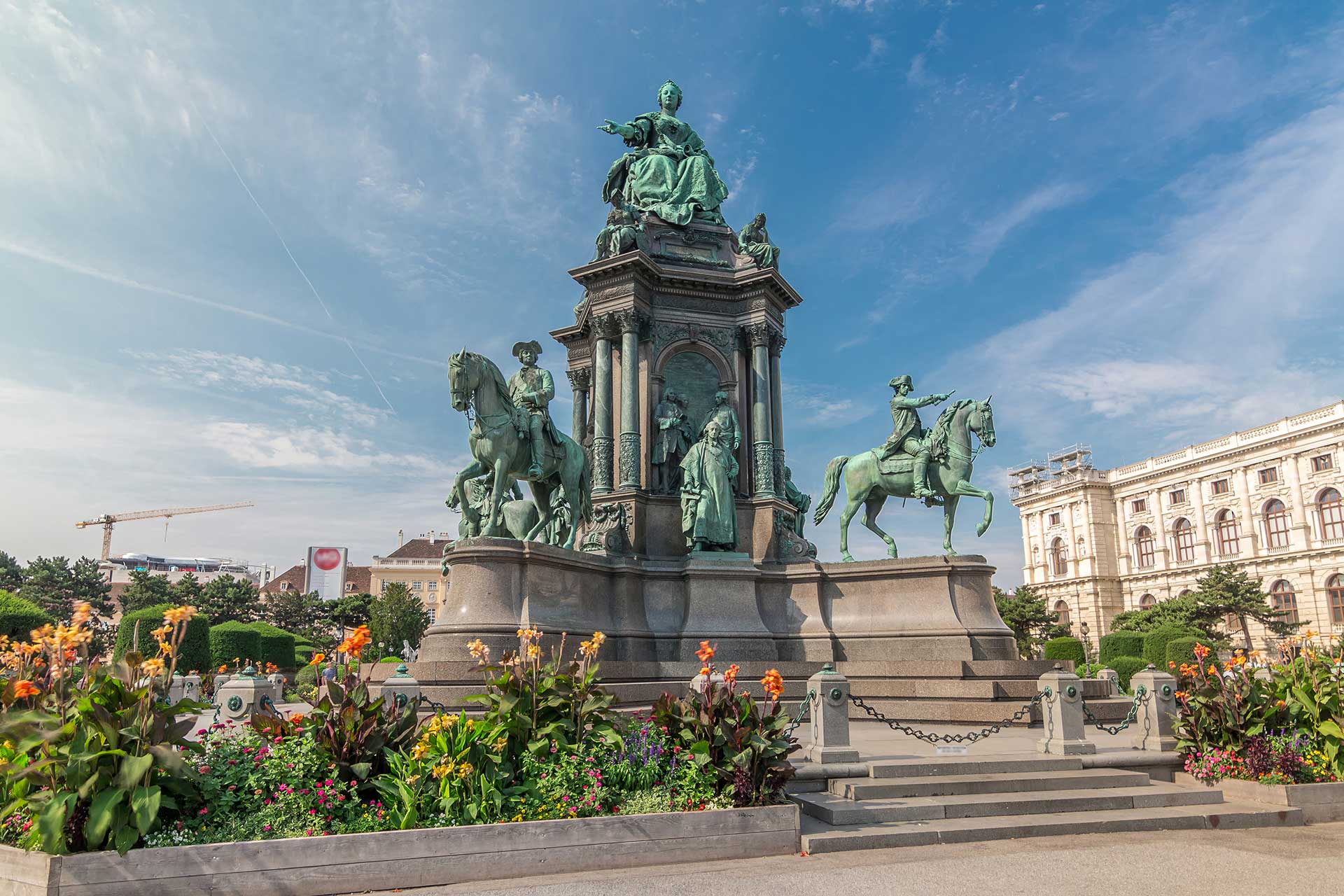
Procedure for obtaining citizenship
Once you have decided on the basis (method) and made sure that you fulfill the conditions, there are several steps to go through in order to obtain Austrian citizenship. The process is lengthy, requires preparation of documents and interaction with state authorities. Let us consider the steps by example of a typical path of naturalization through residence:
- Obtaining a residence permit.
First, the immigrant must legally move to Austria. If you are from a country with a visa regime, you must first apply for a national visa D, and then apply for a temporary residence permit upon arrival. The basis for a residence permit can be work, study, business, family reunification, etc. The initial residence permit is usually issued for 1 year, with the possibility of extension. In general, it is necessary to live with the renewed residence permit for 5 years, meeting the conditions of income and absence of violations, to then apply for a permanent residence. - Registration of permanent residence (Daueraufenthalt).
After 5 years of continuous legal residence, a foreigner can be granted a long-term residence permit (Daueraufenthalt). This status confirms integration: you have a stable income, housing, basic integration program (for example, knowledge of German at the level A2-B1). Permanent residence in Austria is granted indefinitely, but the residence card must be re-issued every 5 years. Having accumulated the necessary length of residence (as a rule, 10 years in total, including the years of residence permit and permanent residence), you move on to the next step. - Passing the qualification exam.
One of the key requirements for citizenship is to successfully pass an integration test on the basics of Austrian government and history. The exam is a test of ~18 questions about the democratic system, rights and duties of citizens, as well as the history and culture of the republic. You can prepare for it using official materials (some states have textbooks and sample questions). The exam is taken in German. Children under 14 years of age and persons with serious medical limitations in terms of hearing, speech, etc. are exempt from the test. - Gathering the necessary documents.
While you are living in Austria, it is worthwhile to prepare the documents for the dossier well in advance. A standard package includes: a valid passport, birth certificate, marriage certificate (if applicable), family documents, address registration statement (Meldezettel). Also required: proof of financial solvency (income statements, tax returns, employment contract or business documents), certificate of German language proficiency (at least level B1, and for accelerated procedure – B2), certificate of passing the integration exam, references or recommendations (sometimes letters of recommendation are requested from your employer, community members, confirming your social activity). All foreign documents must be translated into German and certified (either by apostille or consular legalization). - Submission of an application for citizenship.
The application must be submitted in person to the competent authority in the place of residence – usually the citizenship office of the municipality or the federal state government. The application can be filled out on a special form (in some Länder the forms are available online). You will need to make an appointment in advance and submit a full set of documents. After accepting the application, officials will interview the applicant and examine the evidence provided to prove that the conditions have been met. The dossier is checked quite thoroughly, including inquiries to the police, tax authorities, security services. - Waiting for a decision.
The processing time for citizenship applications in Austria ranges from 6 to 9 months in standard cases. In practice, the waiting time is often closer to the upper limit and sometimes longer – up to a year or more, depending on the workload of the authorities and the complexity of the check. If the decision is positive, an official notification (Bescheid) is issued granting citizenship. However, this is not the end of the process: the decision is usually conditional. Austria requires the renunciation of former citizenship, so the applicant is first issued a Letter of Guarantee from the government that Austrian citizenship will be granted after the renunciation of current citizenship. From then on, the applicant has 2 years to provide proof of renunciation of his/her foreign nationality (unless he/she fall under the exceptions that allow them to retain a second passport). Once this condition is met, a final naturalization order is issued. - Swearing in and receiving a passport.
The final step is the solemn swearing-in ceremony. The new Austrian citizen publicly swears allegiance to the Republic and to its laws. The oath is usually taken by representatives of the local government and is conducted in an official atmosphere. Afterwards, you receive a certificate of citizenship. With this certificate you can apply for an Austrian passport and national identity card. Passports take about 5 working days to produce and the state fee for a passport is about €75.
As you can see, the path from the beginning of immigration to the moment when the coveted passport of an Austrian citizen is in your hands is a long one. At a minimum, it takes several years, but more often it takes more than a decade. At each stage, you need to comply with the established rules of stay, so it is important to plan everything in advance and follow the requirements of the law.
Check your chances of getting an EU passport through a simplified procedure
Sign up for a free consultation to learn more from the experts at Mycitizenagency as soon as possible
Requirements for applicants for citizenship
The Austrian Citizenship Act imposes strict requirements on foreigners wishing to naturalize. In addition to a sufficient period of residence, you must meet a number of criteria designed to demonstrate your trustworthiness, integration and independence. The basic conditions for the applicant are as follows:
- Length of residence in the country.
The applicant must legally and permanently reside in Austria for a minimum period of time. In general, this is 10 years, of which at least 5 years in the status of permanent residence. For preferential categories the period is reduced to 6 years (see above), and in special situations the right to citizenship arises after 15 or 30 years of residence. It is undesirable to interrupt life in Austria: long trips abroad may be grounds for refusal, as the continuity requirements are very strict. - Proficiency in German.
It is necessary to prove sufficient knowledge of the national language. The required level is at least B1 on the CEFR scale (intermediate level) and can be proven by a certificate (for example, Österreichisches Sprachdiplom Deutsch) or a training certificate. A higher level of B2 is required for accelerated naturalization. Only children under 14 years of age and certain categories, for example, foreigners whose native language is German or those who have attended a German school, are exempt from the language test. - Integration exam.
In addition to the language, a basic knowledge of society and law is tested. As mentioned above, you are required to pass a test on Austrian history, the foundations of the constitutional system, citizens’ rights etc. A certificate of passing the Integrationsprüfung (module 2) is a prerequisite. This test confirms that the applicant shares fundamental democratic values and is familiar with the culture of the country. - No violations of the law.
A very important requirement is an impeccable reputation. You must not have a criminal record or serious administrative offenses. Both Austrian and foreign data are checked: any criminal offense in the past practically guarantees a refusal. There must also be no ongoing investigations or legal proceedings against the applicant. In addition, it is checked that there are no ties to extremist and terrorist organizations and that there are no immigration violations (deportations, bans on entry to the EU). In other words, the applicant must prove his/her law-abidingness and loyalty to the state. - Financial solvency (self-sufficiency).
Austria requires that the new citizen is not a burden on the social system. It is necessary to prove a stable and sufficient income over the past years. Specifically, it is necessary to have your own regular income (salary, business profit, pension, confirmed alimony, etc.) for 36 months out of the last 6 years before the application. Moreover, the last 6 months of income must be uninterrupted immediately before filing. In terms of amounts, the income is considered in comparison to the Austrian minimum subsistence level (Ausgleichszulagenrichtsatz). For example, in 2024 the minimum net income considered sufficient is about €1,218 per month for a single applicant. For a married couple, about €1,921 for two people, plus ~€188 extra for each child. These figures are indexed annually. The calculation takes into account income after deducting basic expenses: rent, loans, alimony (it is allowed to leave a certain amount for living expenses, in 2024 ~ €360, above which expenses reduce the countable income). Important point: it is undesirable to receive social benefits from the state, especially in the last six months before filing – this may indicate an inability to be self-sufficient. - Permanent address and housing.
The applicant must have an officially registered place of residence in Austria (Meldezettel) and usually proof of housing (rental or ownership contract). This demonstrates rootedness: the person actually lives in the country and has a place to live. - A positive attitude towards the Republic of Austria.
The law requires the applicant to show loyalty and to observe Austrian values and customs. In practice, this is an evaluative concept: it takes into account whether the applicant has not led an anti-social lifestyle, whether he or she respects local traditions, whether he or she participates in public life. The immigration authorities may even collect feedback from others – neighbors, employers – about your behavior during your stay. It is important to show that you are already part of Austrian society, integrated and share the democratic values of the country. - Renunciation of former citizenship.
Austria adheres to the principle of single citizenship (detailed in the next section). Therefore, the general rule is that a foreigner must renounce his or her original citizenship before obtaining an Austrian passport. Exceptions are possible only in rare cases: for children who receive two citizenships at birth (they are allowed to retain both) and for persons of exceptional merit to whom the government may specifically authorize dual citizenship. In the standard situation, proof of renunciation of the other citizenship must be presented at the time of naturalization. This requirement may be omitted only if renunciation is practically impossible or unjustified (for example, the country of origin does not permit renunciation) – but such cases are assessed on an individual basis.
It should be noted separately: the applicant’s status in Austria must be legal throughout the entire process. A valid residence permit, its timely renewal, payment of taxes and insurance premiums are indispensable conditions. If an immigrant violates the visa regime or loses the right of residence, he/she will not be eligible for citizenship.
Thus, the path to Austrian citizenship requires not only time, but also serious efforts to fulfill all requirements. You should start preparing in advance: learn the language, maintain financial stability, avoid problems with the law, and participate in integration courses. Then, by the time you submit your application, your dossier will be convincing and your chances of a positive decision will increase significantly.
Terms and cost of registration
How long does it take to obtain citizenship? In general, naturalization in Austria is one of the longest processes in Europe. The minimum period of residence before applying is 6-10 years (in special situations), the standard period is at least 10 years, and sometimes the whole 15-30 years (if additional proof of integration is required). Once the application itself is submitted, the processing also takes months. The law obliges the responsible authority to make a decision no later than 6 months from the date of submission of documents for citizenship, but in practice it often takes 6-9 months just to review the case. In complicated cases or in case of workload, the waiting time can drag up to a year or more. Thus, even having fulfilled all formal conditions, be prepared to wait for about a year from the moment of application to receiving a passport.
If you sum up the whole way “from zero” – from the moment you move to the country – the total duration of the process will be about 10-12 years (for ordinary naturalization). For example: ~5 years to permanent residence + 5 years to the right to apply + ~1 year for consideration and withdrawal from the former citizenship. In case of accelerated procedure (6 years) you can manage about 7-8 years in total. And under maximally favorable circumstances (investments, marriage, etc.) – a minimum of ~6-7 years.
Cost is another important issue. Obtaining citizenship is associated with various state fees and costs at each stage. Here is an approximate list of the main costs:
- National visa D for entry – €164.
- Issuance of a temporary residence permit – €120 (for each extension similarly).
- Obtaining a permanent residence permit – €120 (one-time payment upon transfer to permanent status).
- Citizenship application submission and processing – €125.60 (for an adult applicant; for children – €68.50).
- Directly granting citizenship (entering the decree) – €1,115 for an adult (for a minor – €247.90).
- Issuance of a naturalization certificate – €14,30.
- Production of a passport – €75,90 and internal ID – €61,50 (to be paid after citizenship is acquired).
In total, the state fees alone on the way to a passport amount to approximately €2,500 per person. And this is without taking into account the associated costs: payment for translations of documents, notary services, language courses and exams, trips to embassies and migration authorities, housing and living expenses in Austria for all years. If we are talking about the investment option – there the sums are incomparably higher (millions of euros of contributions to the economy). Thus, Austrian citizenship is expensive both financially and in terms of invested time resources.
Of course, the value of the obtained status often justifies the costs. But every immigrant should soberly assess his or her strengths and consider alternatives. In other EU countries, there are faster and more cost-effective ways to become a citizen (for example, through repatriation in Slovenia or Romania). If your goal is a second EU passport with less time and money, it makes sense to explore these programs.

Whether it is possible to have dual citizenship in Austria
Dual (second) citizenship is strictly prohibited in Austria. The law is based on the principle that a person should have only one citizenship – Austrian citizenship. Accordingly, the following policy is implemented:
- If an Austrian citizen voluntarily acquires foreign citizenship, he or she automatically loses Austrian citizenship (without any special notification by the state). To prevent this from happening, an Austrian is obliged to request and obtain permission (Beibehaltung) to retain Austrian citizenship in advance before obtaining another passport. In practice, however, such authorizations are rarely granted and for good reasons.
- If a foreigner wants to naturalize in Austria, he or she must renounce the previous citizenship. As we have already mentioned, proof of renunciation of previous citizenship is a mandatory step in the procedure. An exception is made when renunciation is impossible or extremely difficult.
- The birth of a child in a mixed family is accompanied by dual citizenship in fact, but it is allowed for children. If a child is granted a passport of Austria and another country at birth (by the nationality of the other parent or the country of birth), he or she does not have to give up either of them when he or she reaches the age of 18. Austrian law does not require young people to make a choice. Thus, children who are citizens of Austria and another country from birth can keep both passports for life.
- Another category of exceptions is cases of special merit. If the government decides to grant Austrian citizenship to a foreigner for his outstanding contribution, it may allow him to retain his former citizenship (in the interests of Austria). Also in certain rare situations, the authorities may not require a refusal on the basis of the applicant’s personal circumstances (for example, for humanitarian reasons). But we emphasize: for ordinary applicants, the rule is unambiguous – the second passport will have to be “surrendered”.
As a result of the described policy, the vast majority of new Austrian citizens are only Austrians and no one else. By comparison, dual citizenship is allowed in a number of EU countries. There, a person can be a citizen of several states at the same time. Therefore, if your strategy is to obtain a second passport while keeping the first one, the Austrian option is not the most suitable one.
Obtaining Austrian citizenship is a complex, multi-step process that requires time, money and perseverance. This goal is justified if you plan to link your future and your family’s future with Austria or if you want to take advantage of all the benefits of an EU passport. At the same time, the Austrian route will not be optimal for every foreigner. If you are simply looking for a second citizenship for the freedom to travel or do business, there are countries that offer quicker and easier solutions. Before you get started, it’s a good idea to compare the different immigration and citizenship options. Your European passport may be closer than it seems – for example, through repatriation in other EU states.
In order not to make a wrong choice, it is advisable to seek professional support. Immigration lawyers specializing in citizenship of Austria and other countries will help to develop the right strategy. Experts will assess your chances, prepare documents, and accompany you at every stage. Experience shows that with their help the process is much more confident: numerous positive reviews of immigrants who have already obtained an EU passport, confirm that qualified assistance in obtaining citizenship of Austria and other countries accelerates the achievement of results.
Frequently Asked Questions about Austrian Citizenship
We have compiled answers to the most common questions about obtaining Austrian citizenship. If you did not find the information you were looking for or want to learn more about the requirements, timelines, and benefits of an Austrian passport, contact us for a free consultation.
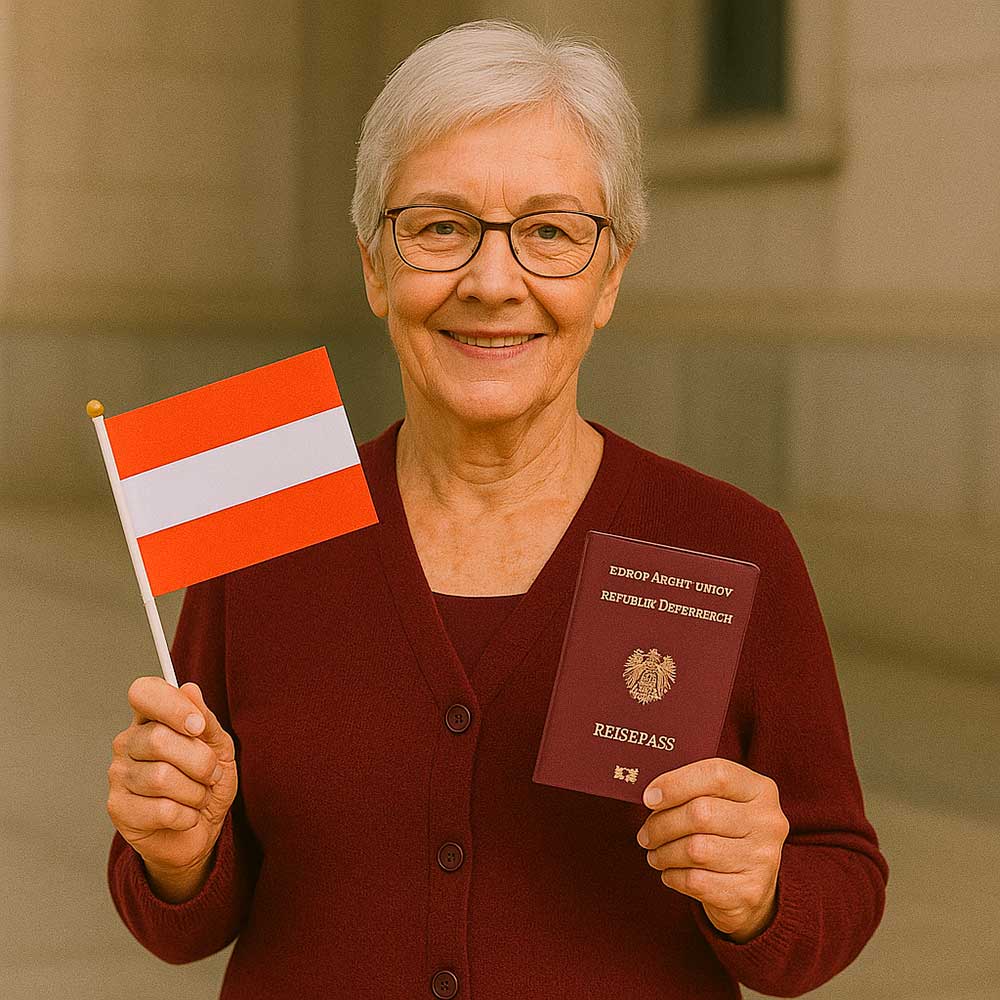
Refugee status (Asylberechtigter) does not automatically entitle a person to citizenship, but it counts towards the period of residence. If a person has been granted asylum and continuously resides in Austria, he/she can apply for naturalization after 10 years. However, having refugee status does not exempt from fulfilling all the standard requirements: language skills, income, no criminal record. There are no time exemptions for refugees – only regular naturalization.
Only partially. Years of study in Austria (under a student residence permit) can be counted in the residence period, but not in full. As a rule, only half of the time spent on student status is counted when calculating the naturalization period. This is due to the fact that a student residence permit does not always imply long-term integration and a stable income.
No, real estate ownership alone does not confer any benefits for citizenship. However, it can indirectly play a positive role as proof of integration, economic sustainability and intention to live in the country. But buying an apartment does not mean buying citizenship: it is the residence, language, income and other conditions that matter.
No, in most cases the application for citizenship can only be submitted in person in Austria – at the office of the place of residence (Landesregierung or Magistrat). The only exception is the descendants of Nazi victims who are entitled to citizenship under §58c: they can apply from abroad via the Austrian embassy. For all others, they must be legally resident in the country and apply in person.
Yes, Austrian citizenship is retained even if you have moved to another country for permanent residence. However, there are risks with long-term residence abroad: if a person was born outside Austria, has never lived in the country and has not declared his or her citizenship before the age of 22, he or she may lose it. This rule applies above all to those who received a passport at birth from an Austrian parent but have not maintained contact with the country.
Generally, Austria does not allow dual citizenship. Exceptions exist only in limited cases, such as citizenship by birth from parents of different nationalities, or when dual citizenship is specifically authorized by the Austrian government.
You can obtain Austrian citizenship by descent if at least one parent was an Austrian citizen at the time of your birth. Citizenship is passed only from parents to children, not from grandparents, and it is automatic at birth if the parent’s Austrian nationality was intact.
Austria does not have a standard citizenship-by-investment program. However, under Article 10(6) of the Austrian Citizenship Act, citizenship may be granted in exceptional cases of substantial investment or contribution to the Austrian economy, culture, or science. This is highly discretionary, requires a significant direct investment (often several million euros), and approval by the Austrian government. It is rare and not guaranteed.
